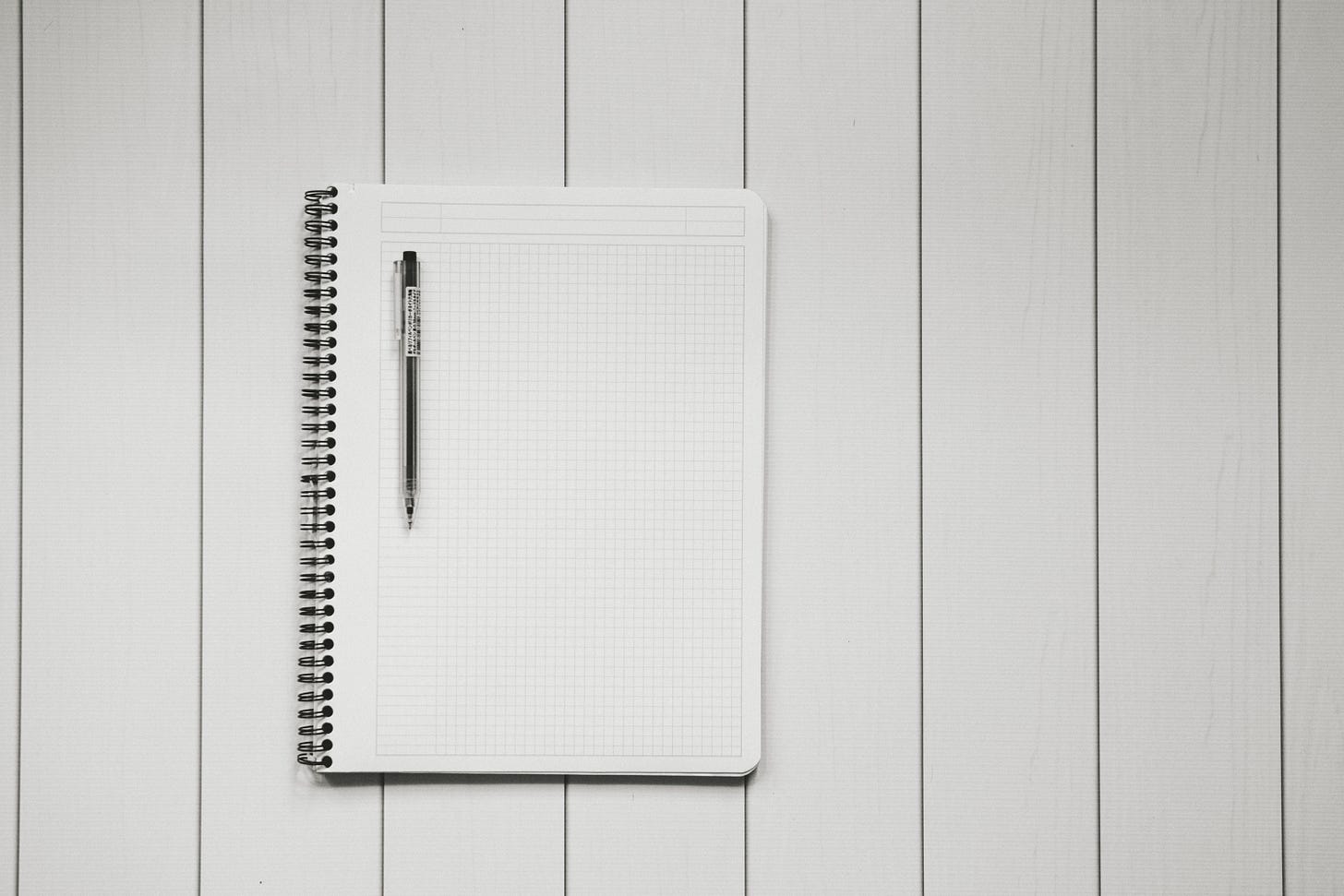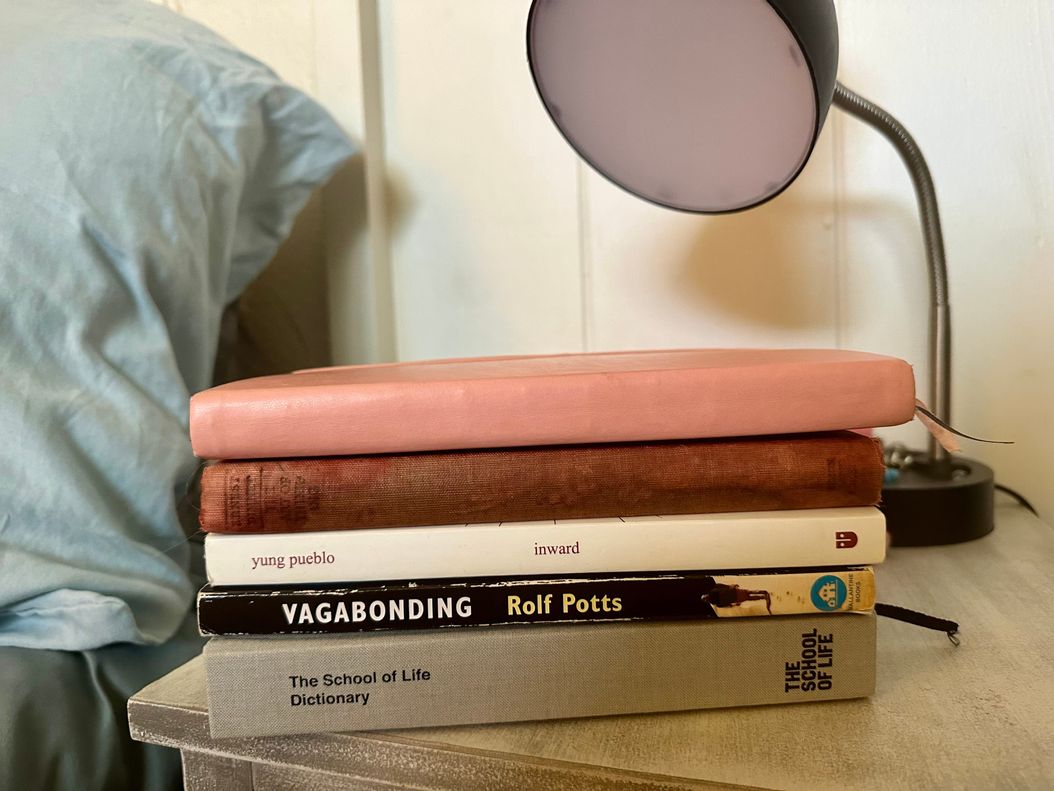Fresh experiences are at the root of reinvention.
Being in a new environment is refreshing. Like waking up to a front yard completely covered in white fluff, it’s untouched by messy humans just yet. There’s something beautiful about disembarking off a plane into a new place. The world's my oyster and it's like a clean slate.
In Latin, there is a phrase for a clean slate called “tabula rasa” which translates to a ‘scraped tablet’, denoting a tablet with the writing erased. It’s defined today as an absence of preconceived ideas or predetermined goals.
Tabula Rasa serves as a reminder that I get to choose how I want to live again. I’ve felt this most recently by coming back to Hawaii after 77 nights away this past summer.
Next to nothing was on my calendar. It’s like that feeling when my dad gifts me a calendar at Christmas with cute dogs on it and all of those little boxes are completely naked, untouched by my pencil or my ink pen. How beautiful is that?
It’s like being at a new house and getting to figure out what to fill it with.
My comforter doesn’t inspire me anymore so I ordered a new one. I’m currently in the market for a new desk because the current table I have from Costco just isn’t doing it anymore. Those red linen shorts I’ve owned for 2 years and worn twice, it’s time for those to go. While I’m at it, that mediocre pillow too.
Tabula rasa living doesn’t just mean doing some fall cleaning though. It’s much more than that. This experience similarly prompts me to ask myself “How do I want to fill my days?”
Some might even think I’m interpreting Tabula Rasa as a similar meaning to another Latin word “Carpe Diem”. I first heard the latter mentioned in my 8th grade English Class while reading the Dead Poet’s Society. The teacher John Keating, played by Robin Williams tells his classroom “Carpe diem. Seize the day boys. Make your lives extraordinary.”
The phrase “carpe diem,” taken from the Roman poet Horace's Odes, written over 2,000 years ago is Latin. But it feels like a Type-A American defined it to mean squeezing every ounce of life by having a perfectly blocked carpe diem calendar and saying yes to as much as possible. It’s better to have colored timeboxes on Google Calendar like the crates crammed next to each other in Costco. The thought of having a moment to pause would go to waste.
An iconic example fully embodying carpe diem is visiting Honolulu for a weekend with an agenda to step off of a perfectly good plane in the air to skydive, plop into the deep blue with a spiraling shark fin and hastefully pay respects at the USS Arizona Memorial at Pearl Harbor.
“What if the day, what if time itself isn’t a scarce resource to seize, but a gift to receive with grateful joy?” - John Mark Comer from The Ruthless Elimination of Hurry
Instead of living that exhausting way, I’ve realized how much I enjoy creating moments Tabula Rasa Reflection. I see Tabula Rasa Reflection as a way to strike a balance between urgently making moves because “you only live once” ways of thinking alongside a wiser and more patient long-term mindset.
Tabula Rasa Reflection takes the times in my life when I feel a blank slate, and turns it into times of clarity around how to fill my days.
The time is ripe for this reflection any time when I am making a drastic change. This is when there’s an intermission or a season to change upon me whether it be a new environment, a changing of jobs, a vacation, or a weekend of intentional time to slow down on a retreat. It makes the most of the change.
Every day is a clean slate. Some might wake up and try to grasp onto what the subconscious left them with an inkling of the past night’s dream. Others might wake with a headache from a night out at the bar. I usually wake up and can’t wait to take out my mouthguard and open the door to see the sun shining into my quaint hale (Hawaiian for home).

What does this look like in practice?
Before I go to bed at night, I write down a few questions or problems I’m seeking answers to. I get to “Google my brain” to answer while sleeping.
First thing in the morning when the sun rises, I wake for the day around 6 a.m. to the sound of spotted doves cooing and sun streaming into the window. I cultivate time by being intentional to cultivate clarity and try my best to answer what I am seeking.
It can be easier to do Tabula Rasa Reflection in a new environment to create new behaviors. All the historical data can be easily overly relied on when in reality each day is a new day that can be lived out differently.
Many times saying “NO” to other usual habits is necessary. Derek Sivers in How to Live says, “Never agree with anything the same day you hear it, because some ideas are persuasively hypnotic.” Sleep on decisions to listen to what you actually believe is true. Channel patience rather than impulsion, no matter how exciting it is to be spontaneous. Instead of rushing, pause and write it out to then step confidently.
We get the opportunity to design our life around what we want. Tabula Rasa Reflection to me means prioritizing time to sit, zoom out, and imagine that life is a clean slate again. An emptier mind allows for clearer thinking.
We each have permission where who we are today does not mean that is who we are tomorrow. For me, in this season, that means non-weather-dependent pastimes, like climbing Kokohead Crater on Wednesdays, running at least twice a week, and reading the bible daily.
Instead of being busy seizing the day and living in the echo chambers of our minds, I urge you to meander away from the routines and rhythms of the grind to dance the fine line of seeing life as a blank slate and choosing how you want to live.
I invite you to pause and create a Tabula Rasa Reflection practice to sit and notice the possibilities of life.
Originally posted here on Substack.
Thank you to my editors including Steven Foster, Shanece Grant, and Elisa Doucette.

